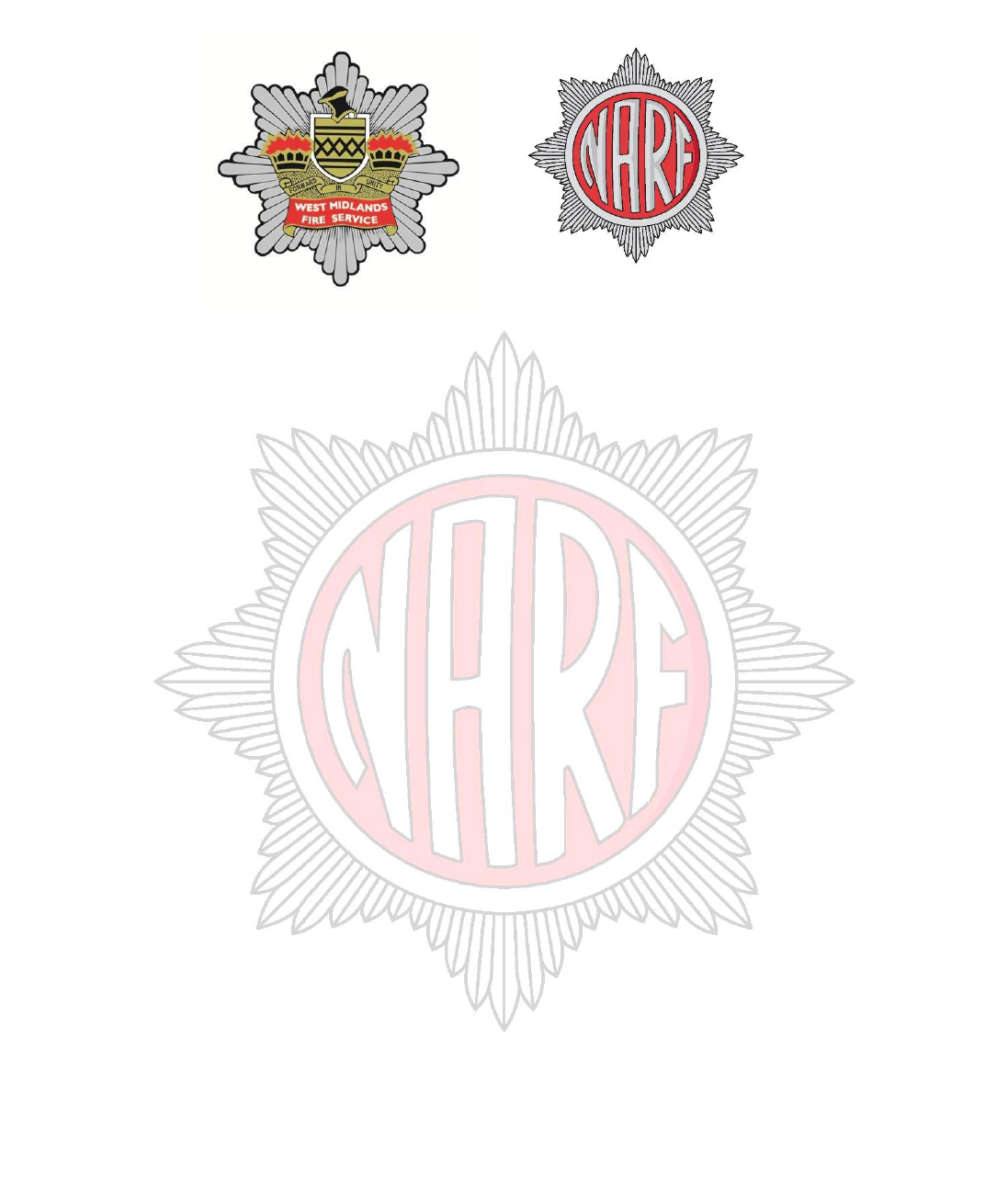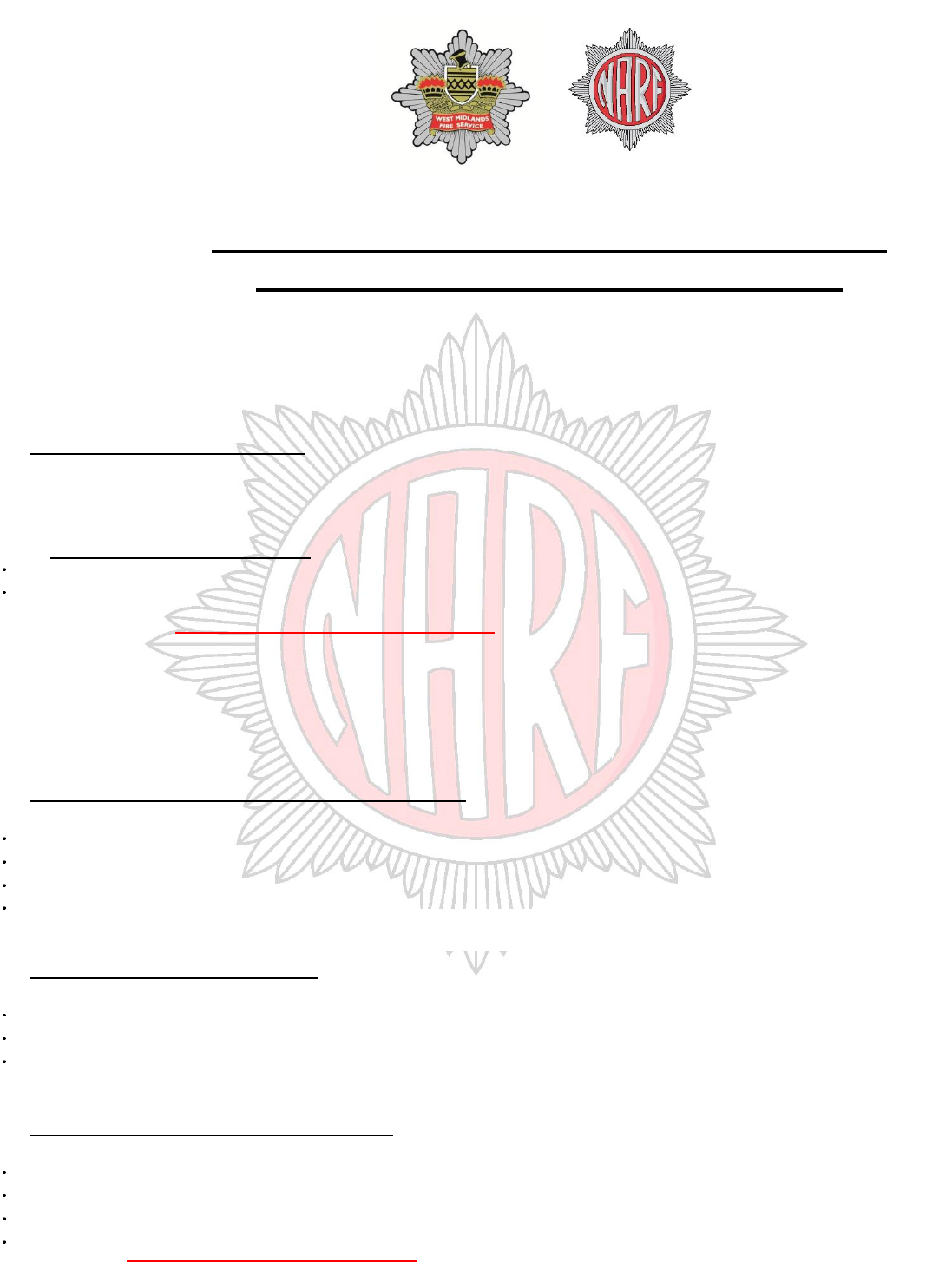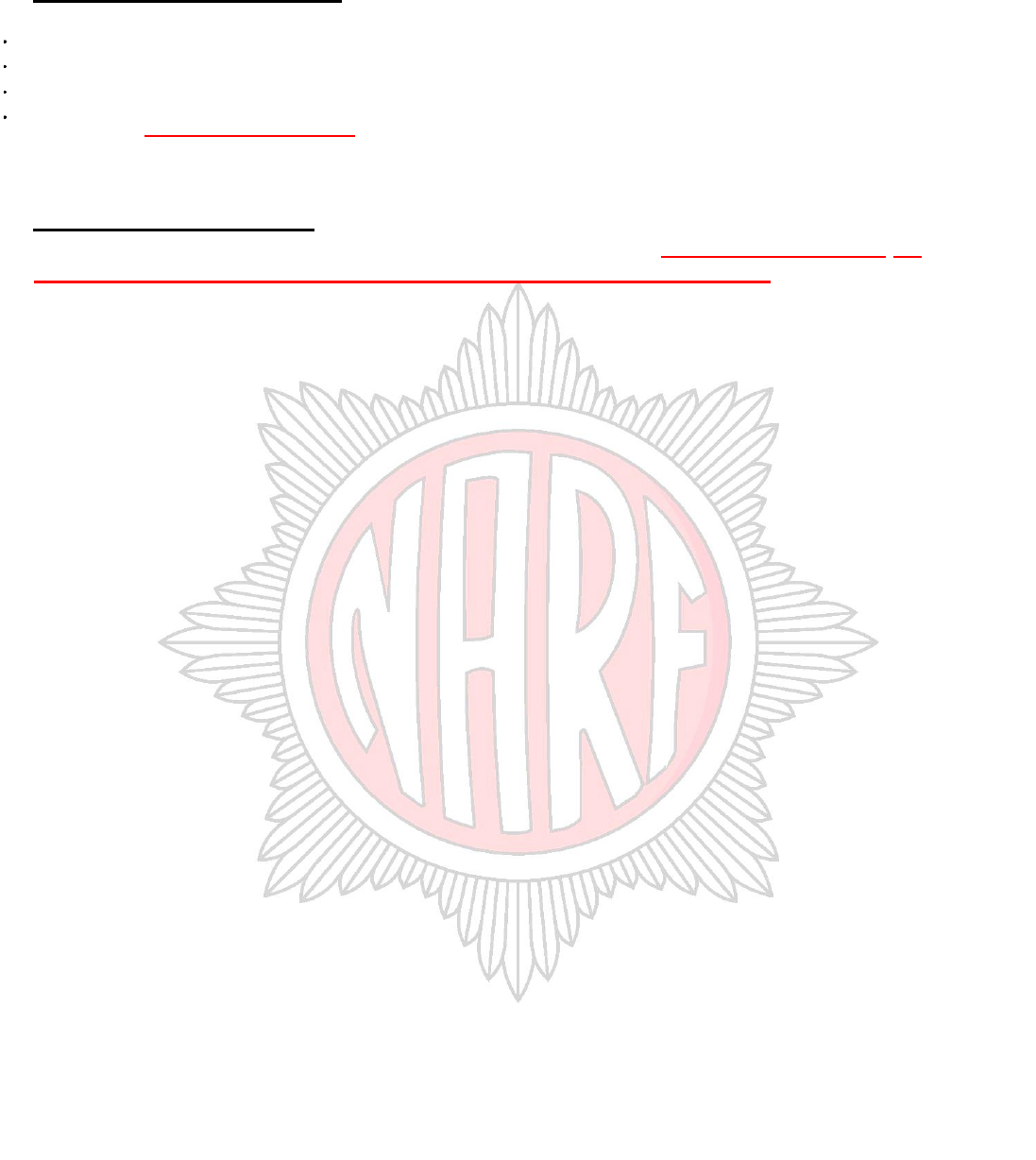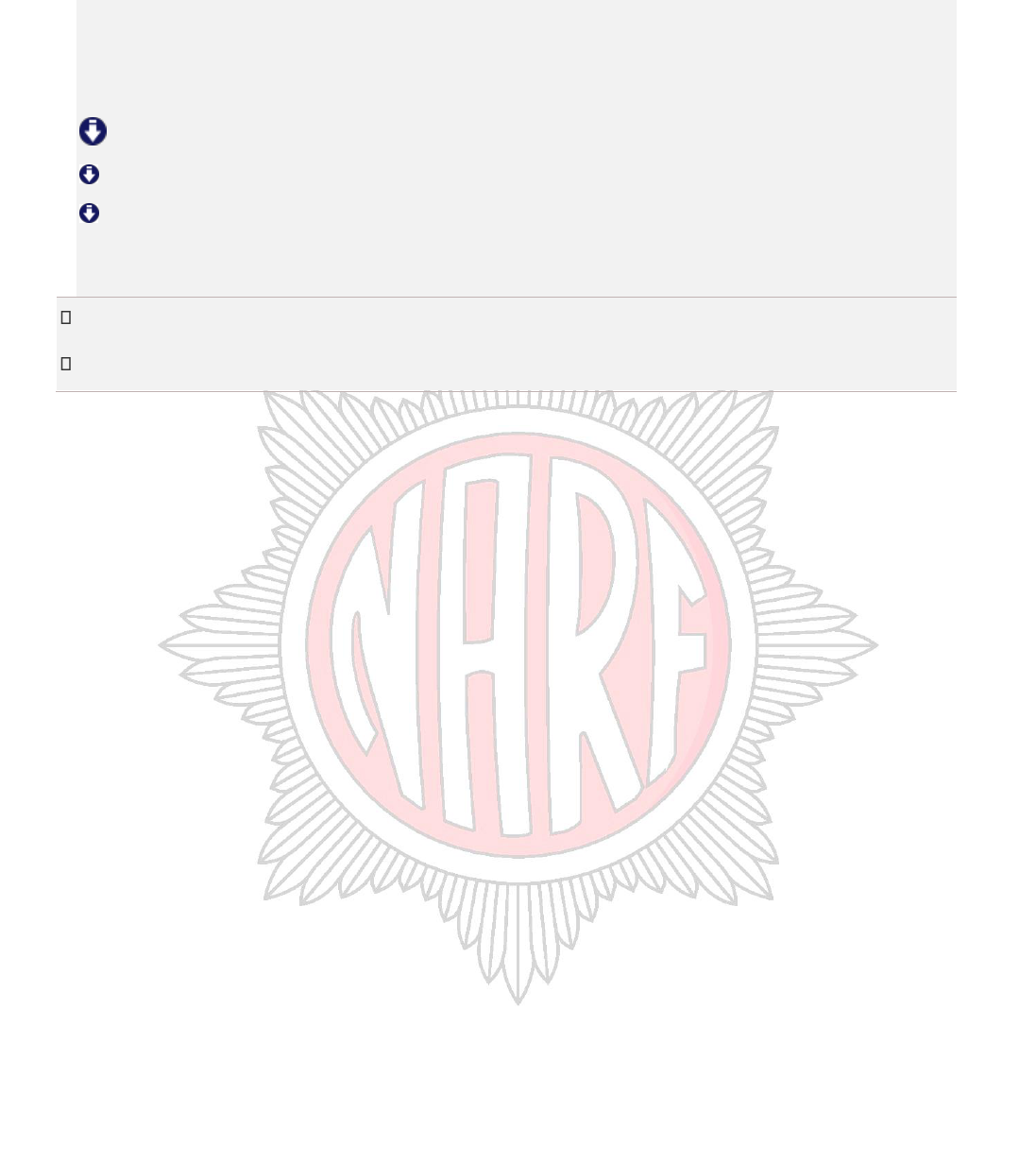
In Case of Sudden Illness
Bereavement Procedure

National Association of Retired Firefighters
West Midland Fire and Rescue Branch
In Case of Sudden Illness
In the unfortunate event of a sudden illness of a retired member, please contact the
following:
NARF Office (Erdington)
Tel : 0121 380 6059
e-mail : [email protected]
Please Note: ‘The NARF Office at Erdington is manned by volunteers Monday to Wednesday
(except Bank Holidays) between the hours off 1000hrs to 1400hrs. Outside these hours, or if
there is no reply, the answer phone will give you an emergency number, or you can contact the
following
City of Wolverhampton & Walsall Branch
Name: John Littleton
Tel: 01902620649
Mobile:07921663502
City of Birmingham Branch
Name: Ian Forrester
Mobile: 07939189337
e-mail : [email protected]
City of Coventry & Solihull Branch
Name: Alan Cramp
Tel:
Mobile: 07584 025235
e-mail: [email protected]
e-mail: john.a.littleton@blueyonder.co.uk

Dudley & Sandwell Branch
Name: Steve Gray
Tel: 0121 559 8124
Mobile: 07878 584238
e-mail : [email protected]
Bereavement Procedure
In the unfortunate event of the death of a retired member, initial contact must be
made to WMFS HQ, Pensions Section on 0121 380 6932 / 6933.
The deceased widow(er), or children, will then be asked to forward to the following address:
West Midlands Fire Service
Pensions Department
99 Vauxhall Road
Birmingham
B7 4HW
The following documents, in order for them to organise any pension entitlement
from the Firefighter’s Pension Section.
Death Certificate
Widow(er)’s Birth Certificate
Marriage Certificate
It is helpful to inform them, in writing, which bank the widow(er) wants their pension
paying in to. Please ensure the account number is included
It would also be beneficial to inform any of the contact numbers at the beginning of this
message.

Registering a death
You must register a death with the Registrar of Births, Marriages and Deaths
for the district where the death occurred. You need to do this within five days
of the death unless it has been referred to the coroner.
Arranging a funeral
Don’t make funeral arrangements until you’re sure the death doesn’t have to
be reported to the coroner, as this can affect when the funeral can take
place.
The deceased person may have left instructions in their will or a letter about
their wishes. They may also have paid into a funeral plan or life insurance
policy, or a pension scheme that provides a lump sum towards funeral costs.
If you have to pay for the funeral, you may be able to get a grant to help
towards the costs from the Social Fund.
There are strict rules about who can get help and how much.
Download the guide When someone dies (PDF 297KB)
and factsheet Planning for a funeral (PDF 252KB) for more information.
Who to tell about the death
When someone dies you need to tell the tax office as soon as possible. See
the guide 'A guide to understanding tax when someone dies' on the HMRC
website to find out what to do.
A driver’s license should be returned to the DVLA and a passport to the UK
Passport Agency.
If the person who died had a Lasting Power of Attorney (LPA) or Enduring
Power of Attorney (EPA) and you were the attorney, send the original LPA or
EPA and a death certificate to the Office of the Public Guardian.
You may need to contact other organisations too, like the deceased person’s
bank, insurance company, pension scheme provider, mortgage provider,
utility company and GP.

What else?
Have a look at the GOV.UK checklist to see what else you may need to
do after a death in England and Wales.
Download the guide When someone dies (PDF 297 KB)
Download the guide Bereavement (PDF 1.8 MB)
Download the factsheet Planning for a funeral (PDF 252 KB)
You may also find interesting...
Find out more about bereavement advice
Find out about powers of attorney
